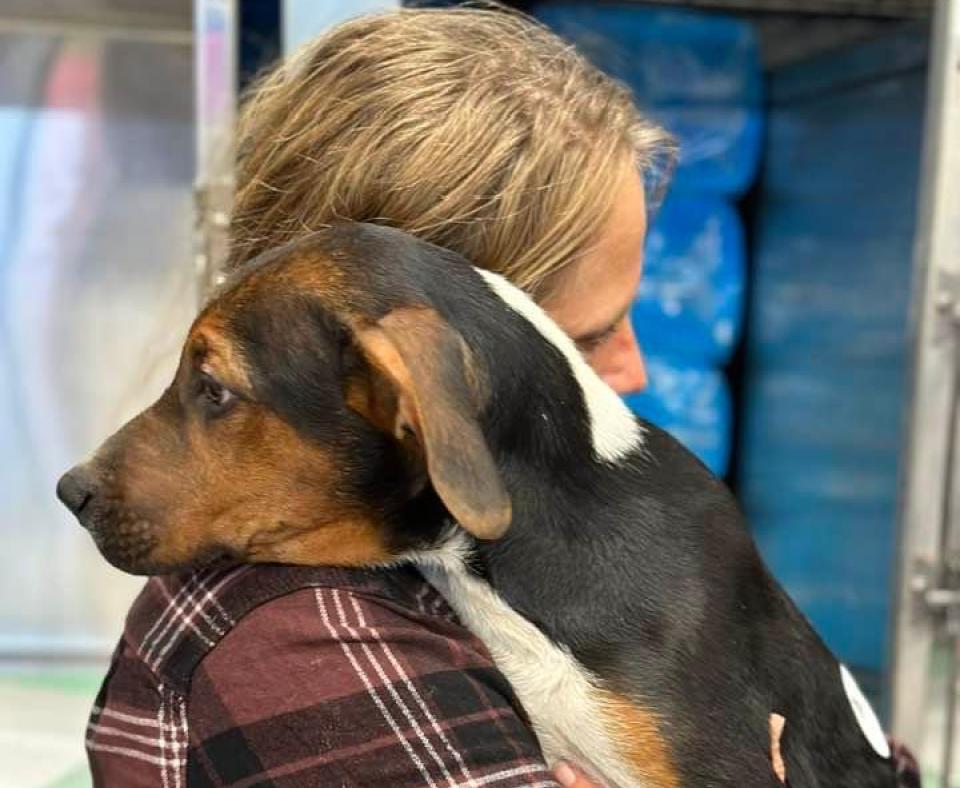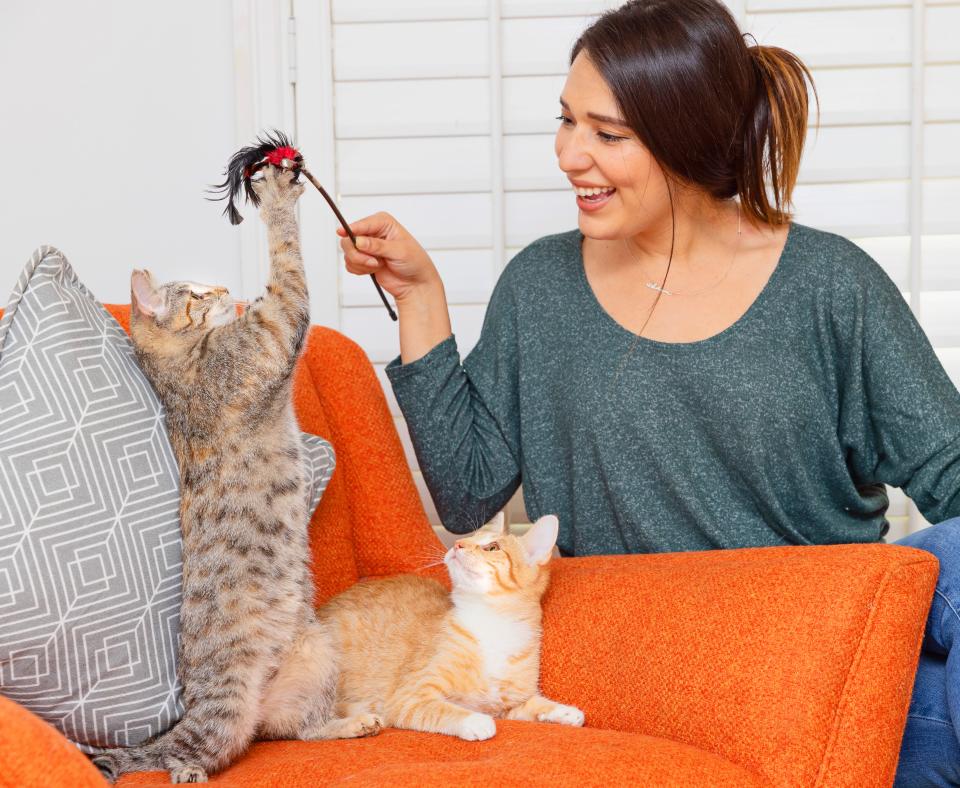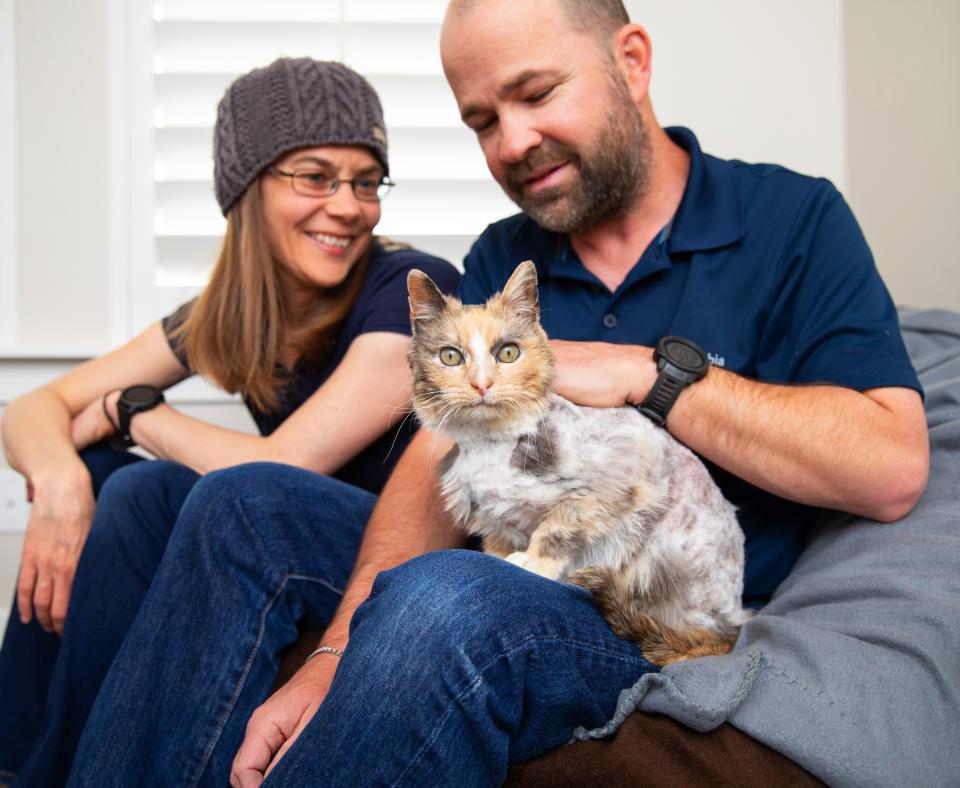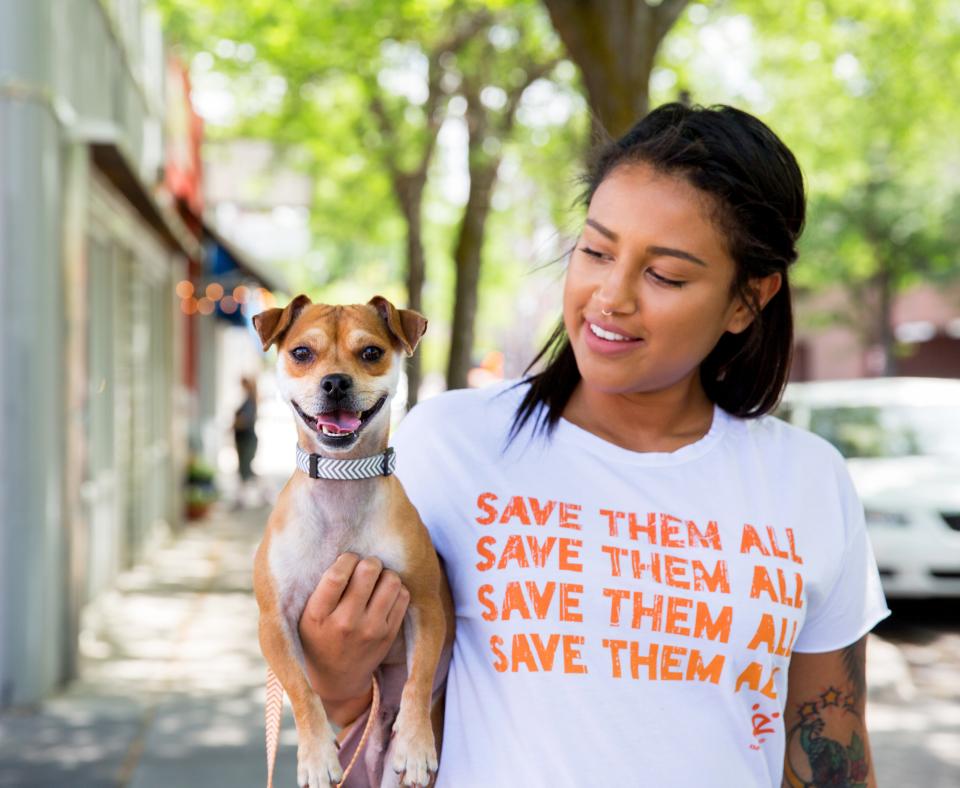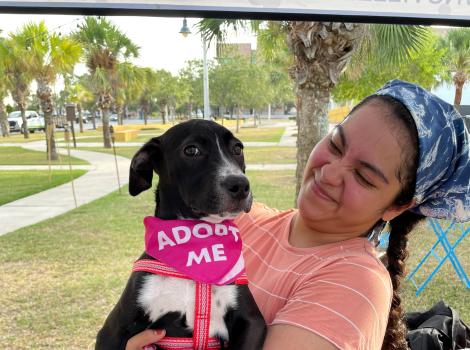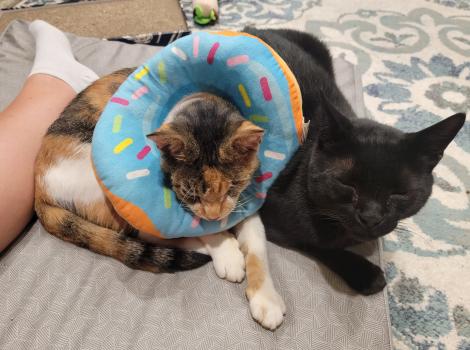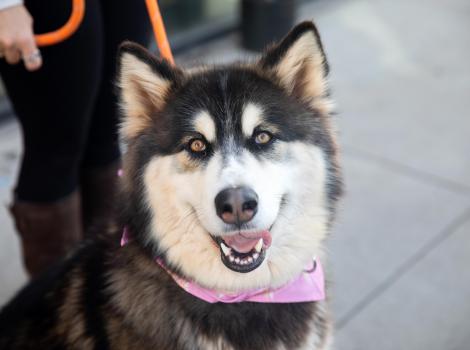Changing life for pets and people in west Texas
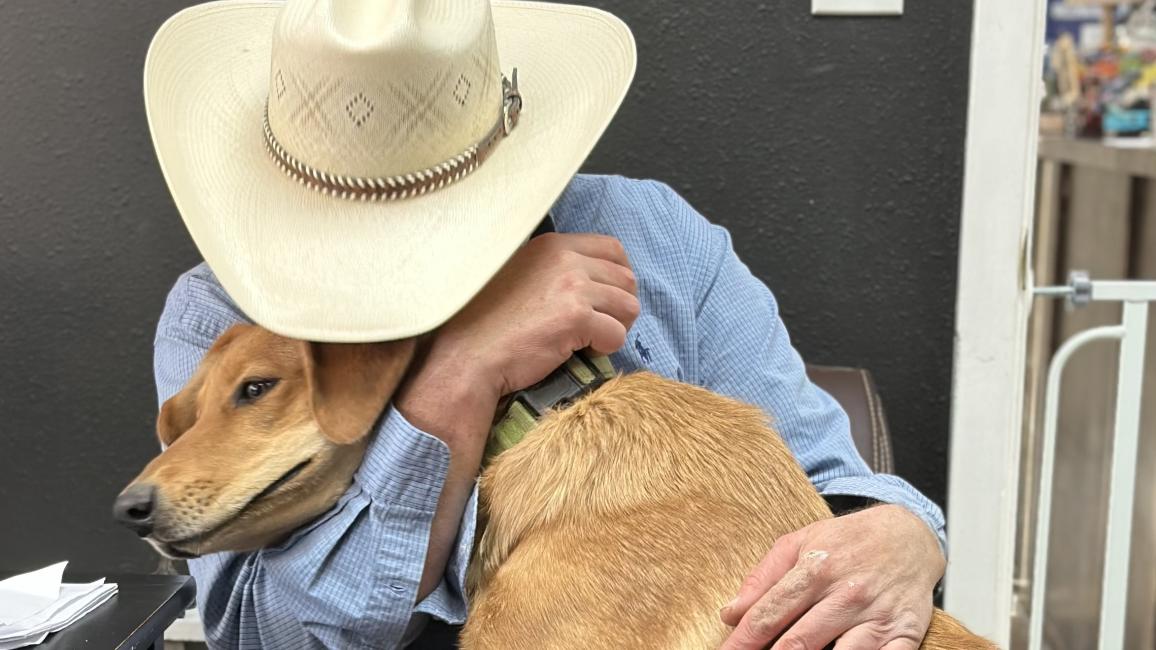
On a dry October afternoon, a local woman came into Fix West Texas, an animal rescue group in Midland, Texas, with her dogs — five sweet and gentle Plott hound mixes. She needed help.
The woman needed emergency in-patient treatment, but she didn’t have anybody to care for her dogs while she was away. They were strays she had adopted, who relied on her for food and shelter. She could not leave them behind.
When Karen Patterson, executive director of Fix West Texas, heard this story, she didn’t think twice.
“If I find someone to foster your dogs, will you be able to go?”
The woman said yes. So Karen immediately contacted her foster network. It didn’t take long for a community member to step up, agreeing to care for all five dogs.
Thanks to invaluable help from the community, and to a Rachael Ray No-Kill Excellence Grant that Fix West Texas received from Best Friends, this story has a happy ending. All costs of care for the dogs while in their foster home were fully covered, they were all kept safe, and their person was able to receive treatment and is now in recovery.
But this is just one of many challenging situations Fix West Texas deals with on a daily basis.
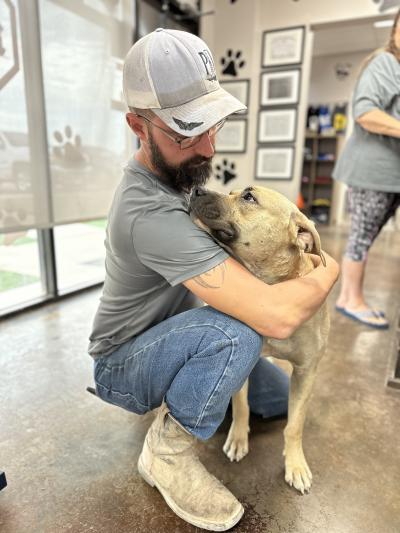
Saving pets’ lives where it’s needed most
Texas leads the country in the number of cats and dogs killed in shelters. The obstacles faced by local animal welfare groups are many, says Paula Powell, Best Friends south central regional senior manager. Overcrowded and under-resourced shelters, lack of staffing, and getting people to embrace community cat programs are just some of the challenges.
However, organizations like Fix West Texas are slowly changing that landscape for the better. In only three years since it was formed, Fix West Texas has become a pillar of the community by offering help through several programs.
There’s the Home-to-Home program, which helps people rehome their pets without having to resort to the overcrowded municipal shelter, and the Pets in Need program, which features a pay-what-you-can spay/neuter clinic that does anywhere from 7,000 to 8,000 surgeries a year. “Thanks to the Rachael Ray grant, this past year we did not have to turn anybody away,” says Karen. “It’s a great feeling because this makes us a hub in our community for people to reach out to.”
[Texas animal shelter gets creative to keep pets at home]
The clinic also offers microchipping, vaccinations, and parvo treatment. On top of that, Fix West Texas has a weekly pet food pantry providing pet food to those who can’t afford it. “I think this is the first time in our community that there's been one single group that's able to actually meet people's needs.”
But more important than what they offer is how they offer it. According to Karen, these solutions work because they are centered on a simple philosophy: building relationships with the community.
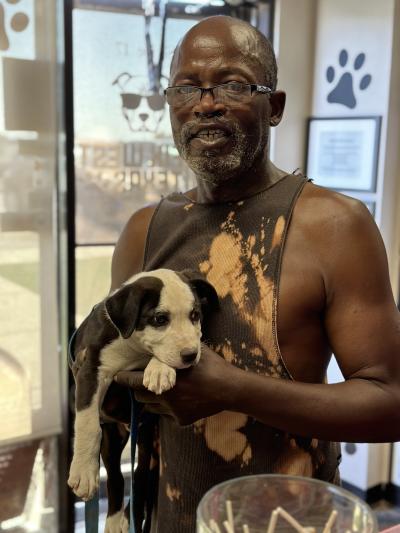
A judgment-free approach to the community
Fix West Texas follows a simple but powerful principle: “We feel strongly that everybody deserves the love of a pet.”
That way of thinking guides the team’s efforts to make the community feel not just helped but embraced. One of the ways they do this is by making adoptions equitable to everyone through low adoption fees, a first in their area.
Another way is by recruiting volunteers to serve as neighborhood ambassadors in areas with a high number of stray animals and pets who aren’t spayed or neutered. Whether it be connecting with people at the local laundromat or coffee shop, these individuals make sure they are reaching the community, rather than waiting for the community to come to them.
[Amazing progress at Brownsville animal shelter]
This judgment-free approach is particularly important for the most vulnerable members of the community. Among the many people Fix West Texas has served using funds from the grant are a local oil field worker who lost his job and had to rehome his dog (the adopter agreed to let the man have his dog back once he got on his feet); an unhoused man who wanted to spay and vaccinate his puppy companion; and a rancher who, after finding and caring for an abandoned pregnant dog and her litter at his property, now brings in strays to get spayed or neutered as soon as he finds them.
“We can't be judging our communities. They're all living different lives and have different barriers. We need to be able to provide the support that we can now,” says Paula. “And I can tell you very much that other communities wish they had a Fix West Texas.”
The biggest hope for the team at Fix West Texas is that they become recognized by the community at large as not just pet services but human services as well. To Karen, those are one and the same. “We’re doing it for the love of the animal but also the human.”
Paula sums up well what is so special about the work done at Fix West Texas: “They really just love their community and the pets who are in the community. That's what makes the difference.
“You gotta love both.”
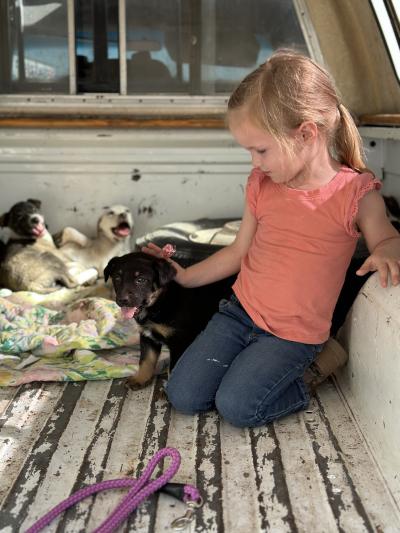
Let's make every shelter and every community no-kill by 2025
Our goal at Best Friends is to support all animal shelters in the U.S. in reaching no-kill by 2025. No-kill means saving every dog and cat in a shelter who can be saved, accounting for community safety and good quality of life for pets.
Shelter staff can’t do it alone. Saving animals in shelters is everyone’s responsibility, and it takes support and participation from the community. No-kill is possible when we work together thoughtfully, honestly, and collaboratively.
